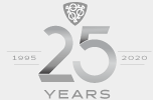Well-considered campus bike programs make colleges more accessible for a clean, efficient, and healthy mode of transportation. While there are challenges along the way as programs become an essential part of campus life, Dero is helping colleges and universities nationwide build strong, resilient cycling cultures.
For many years Dero’s Higher Education Business Developer, Steve Sanders, directed the sustainable transportation program at the University of Minnesota, one of the nation’s largest campuses. Under his leadership, the University of Minnesota became a campus where students and staff can safely and easily move around under their own power. Below are some of his top tips on building a successful biking program at your own school.
1. Approach the effort holistically
According to Sanders, it is important to understand that a good bike program needs more than physical infrastructure to succeed. Support and encouragement for people using bikes are elements that can’t be ignored.
2. Assess your finances
One of the biggest challenges confronting fledgling bike programs is how to secure funding for their initiatives. Vehicle parking revenue, bike registration programs, transportation grants and campus bike shops are all potential revenue sources.
3. Foster relationships
Bike programs cannot thrive in isolation. Aim to connect your program to passionate individuals within your administration. Build ties with the various departments that share your concerns and goals and who can understand the benefits of a robust bike-friendly network on campus. Those departments include Transportation, Sustainability, Health and Wellness and Facilities Management.
4. Build with intention
Install bike parking that is aesthetically pleasing, easy to use and conveniently located. Consider creative ways to incentivize your commuters. Rewarding staff and students who bike commute with reduced health care premiums for staff and gift cards to local businesses for students are great ways to build support for your program. Create campus-wide team challenges. Dero’s Zap system can help with those efforts.
5. Score early wins
It is important to score early wins to build support for your program, so start simply by identifying visible problems that lend themselves to straightforward solutions. Good examples of this include a systematic method for abandoned bike removal or a process to provide orderly bike parking in areas where bikes are locked to trees, benches, fences, etc. These are problems that the campus community sees every day. Position your program to provide solutions and you position it to enlist allies for your future success.

About Steve
For 25 years, Steve Sanders served as the Sustainable Transportation Manager at the University of Minnesota. During that time the University received recognition as both a Platinum-level Bicycle Friendly University and Bicycle Friendly Business. Steve has served on the Minneapolis Bicycle and Pedestrian Advisory Committees and for 10 years was the higher education representative on the Minnesota State Non-Motorized Transportation Committee. He is a year-round bicycle rider and League of American Bicyclists certified safety instructor.








